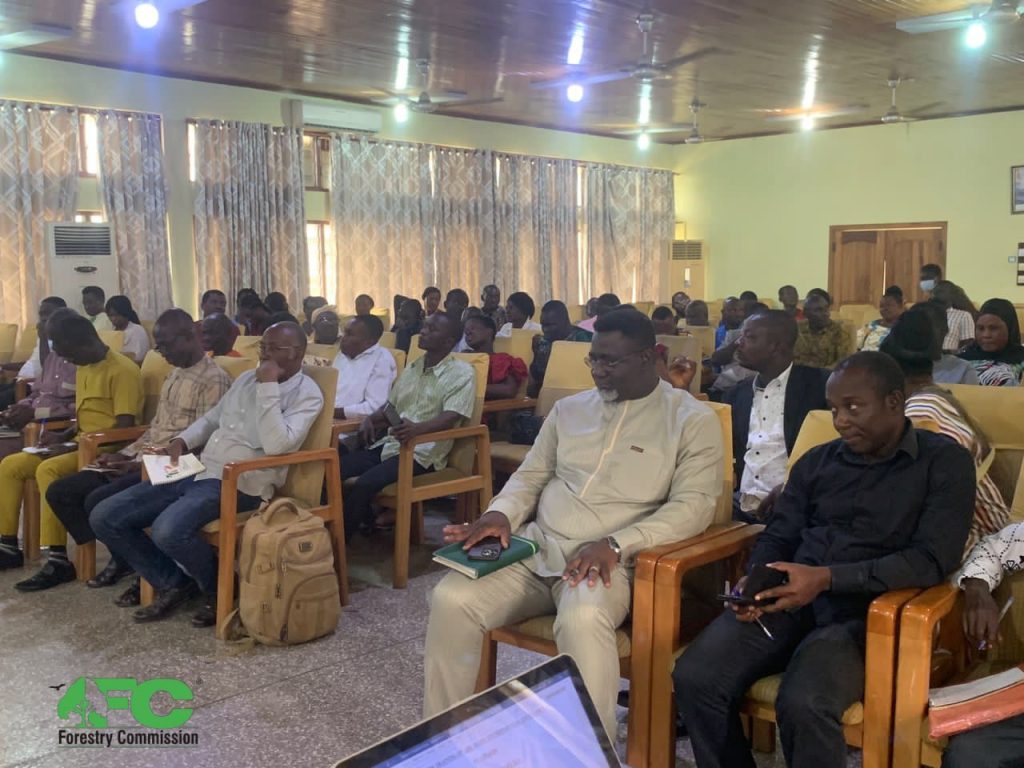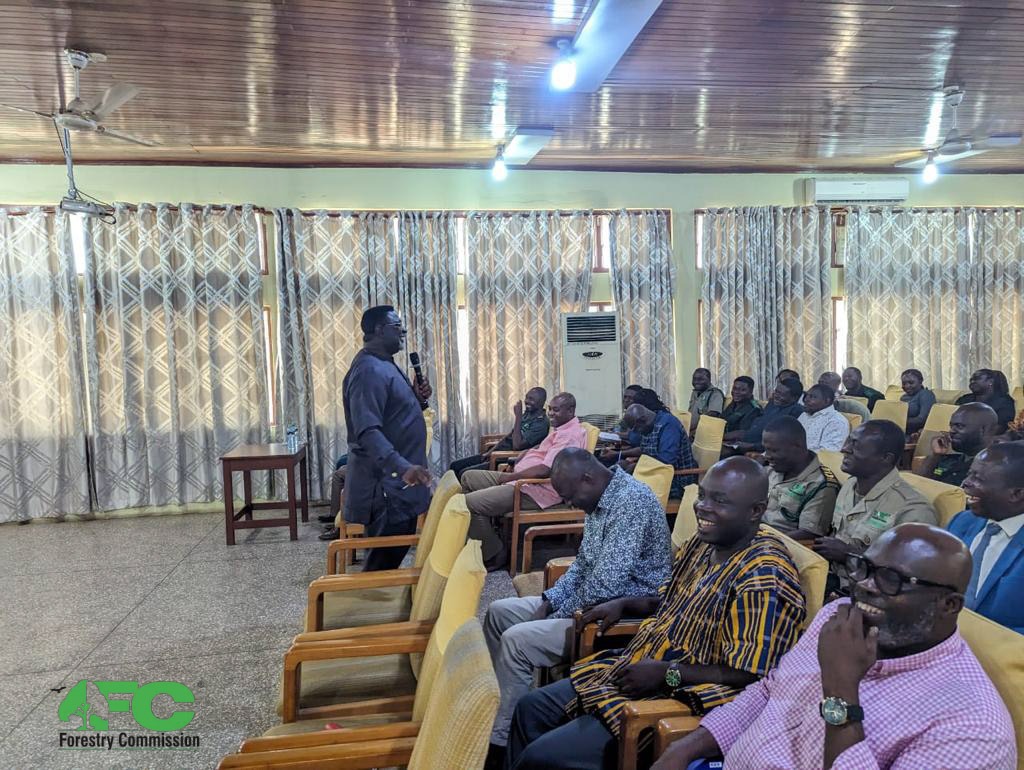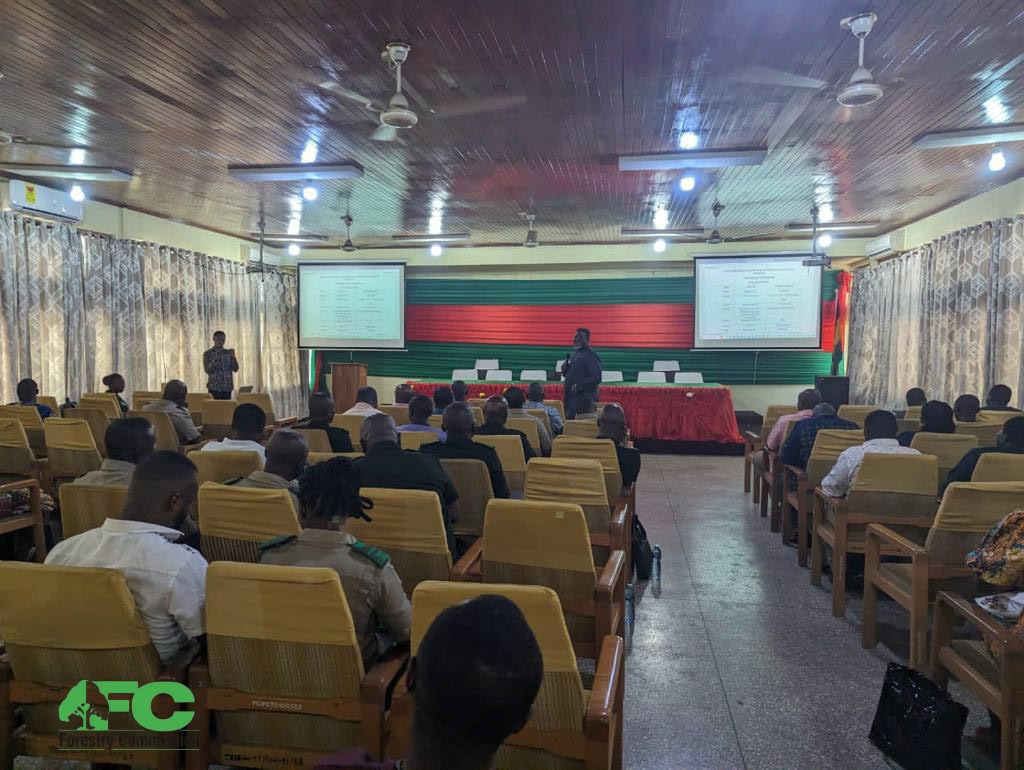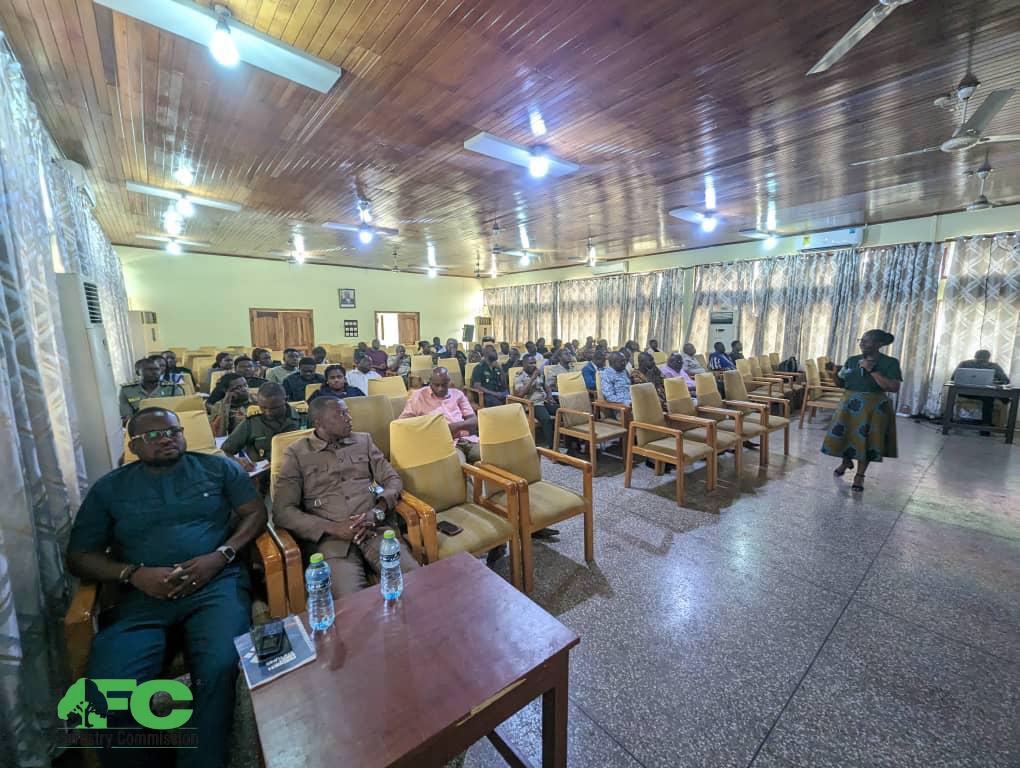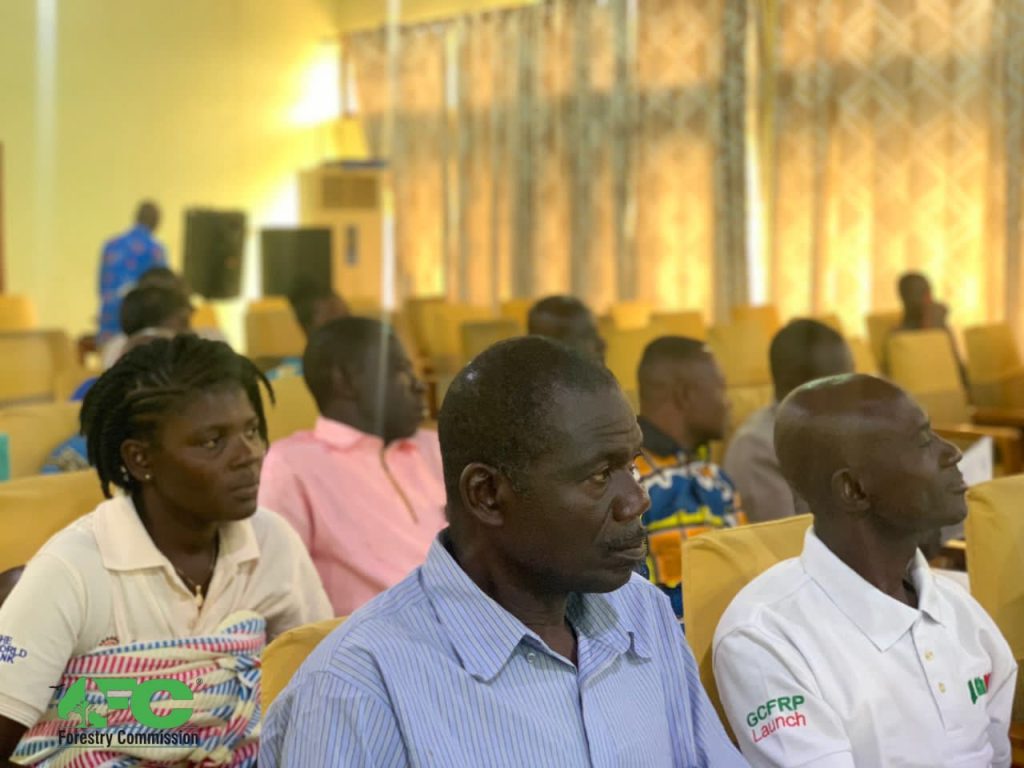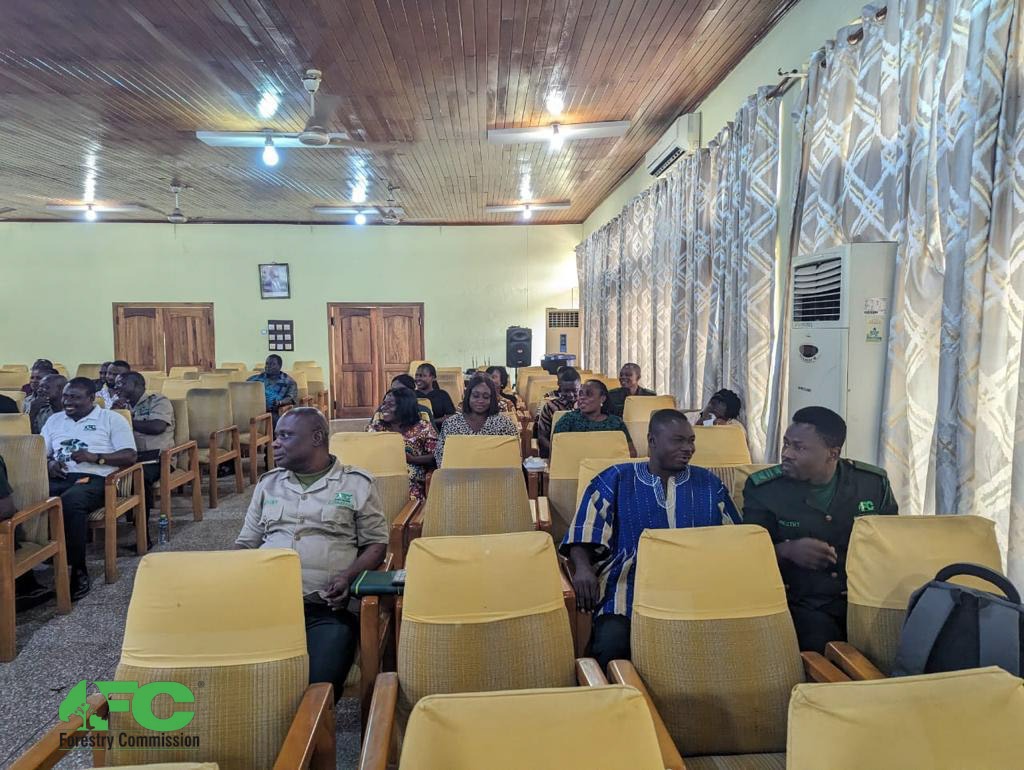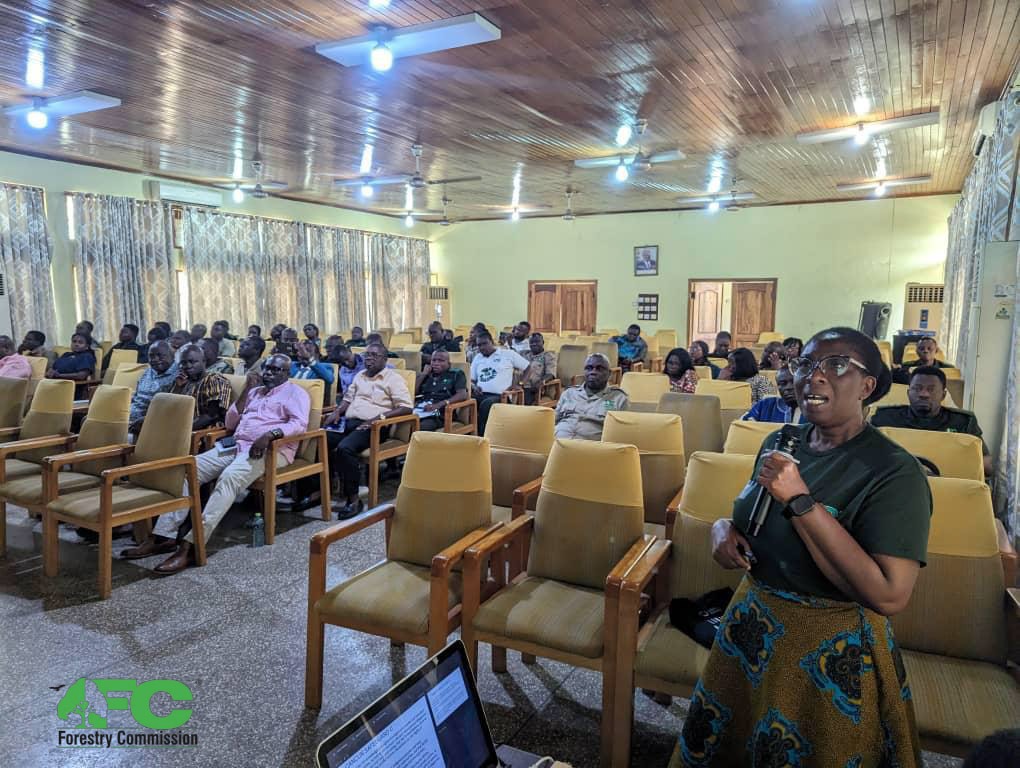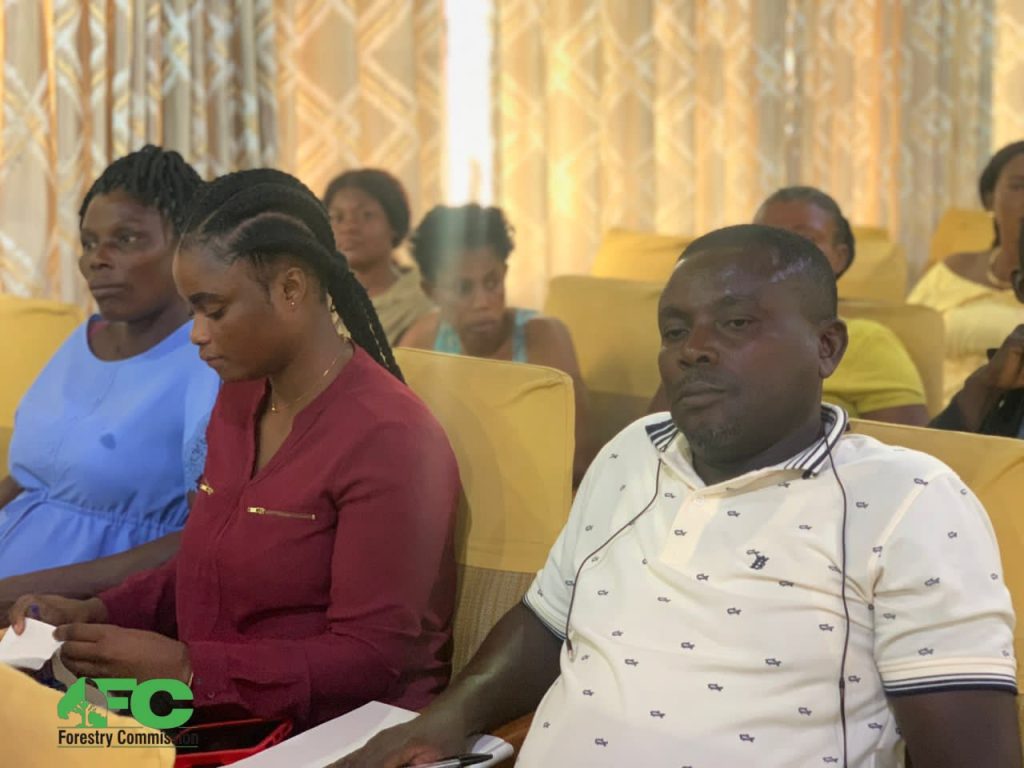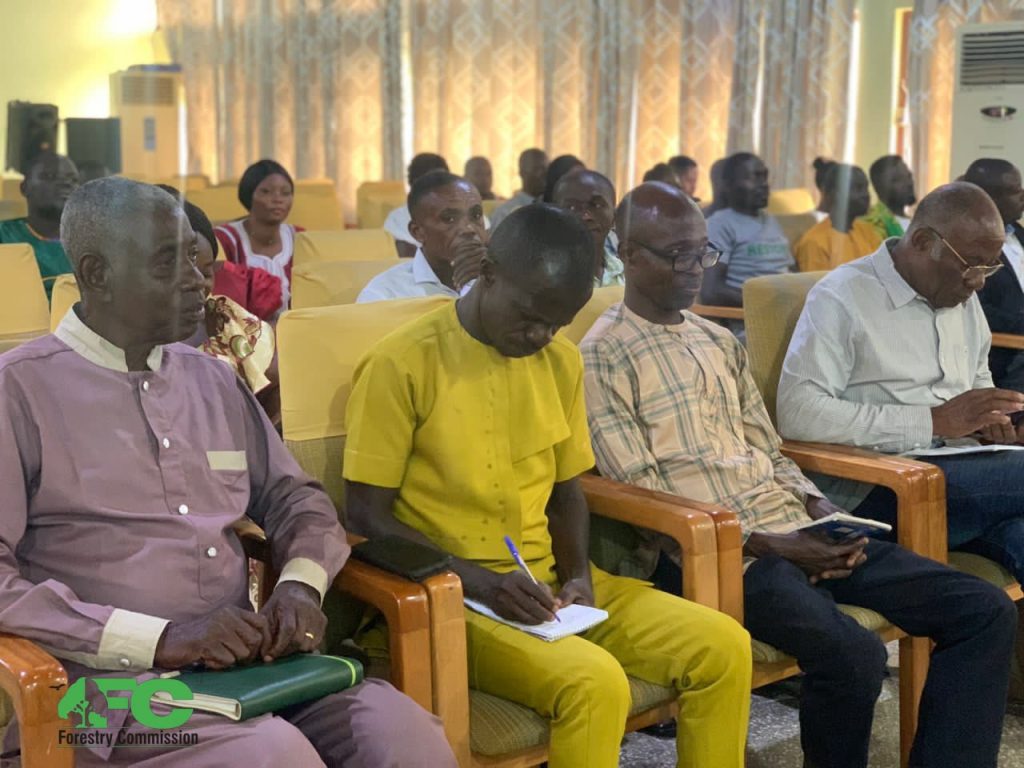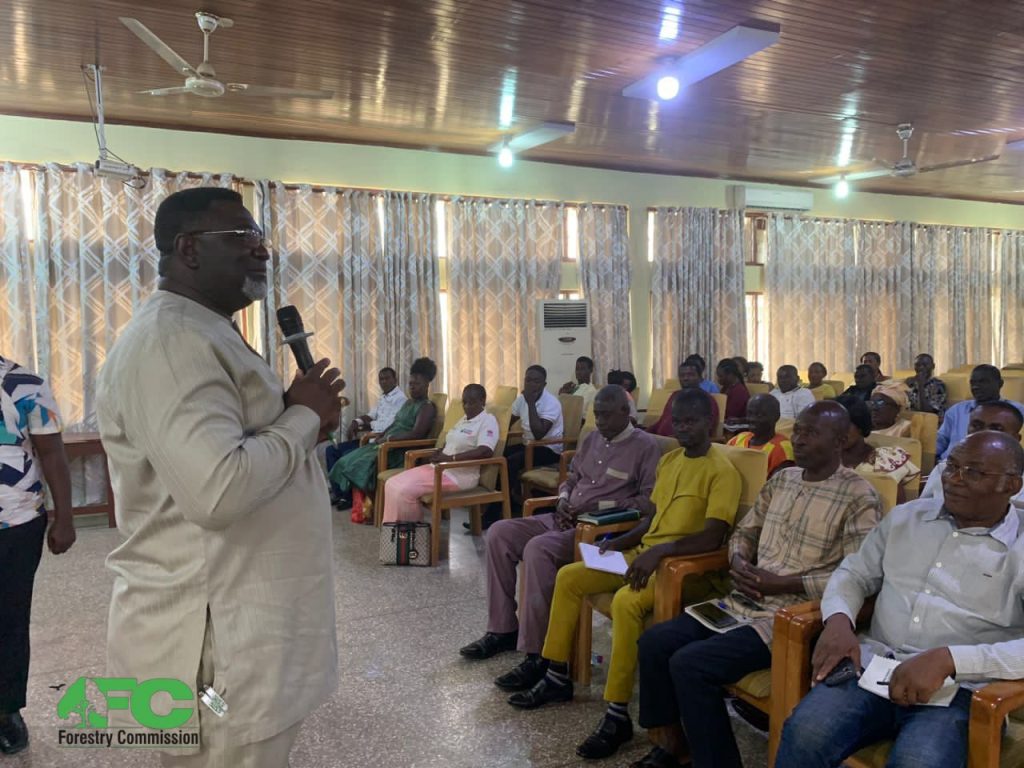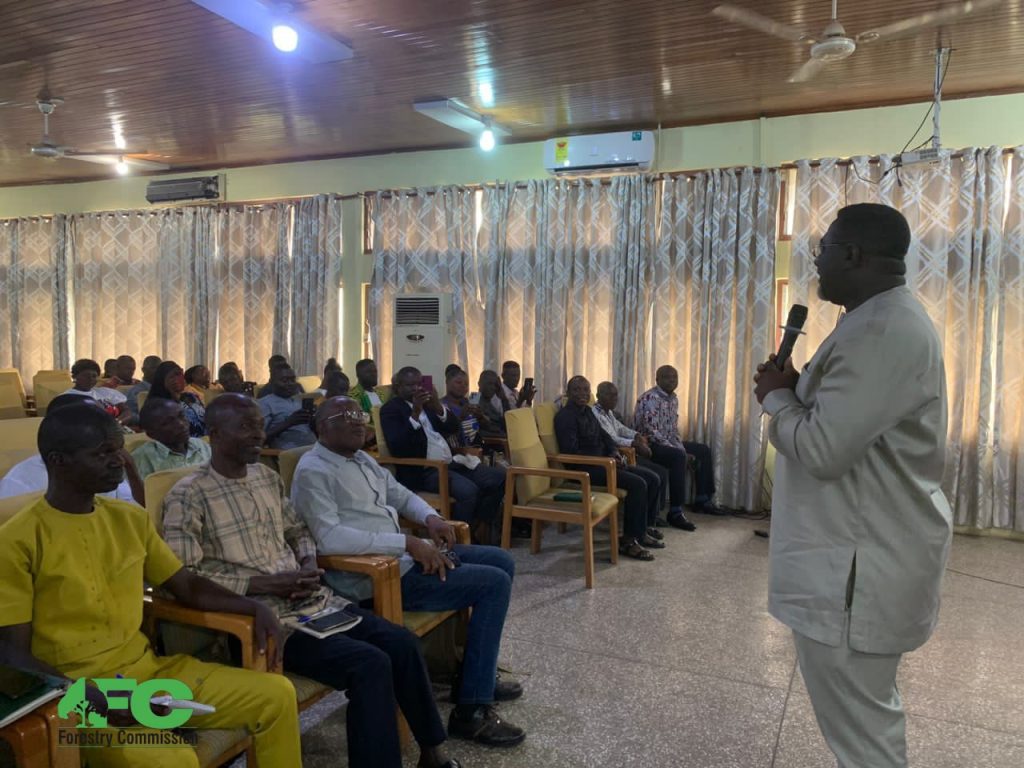The Climate Change Department (CCD)of Forestry Commission with funding support from the United Nations Environment Programme (UNEP)has organised a capacity building for selected staff of the Commission.
The purpose of this training was to educate stakeholders on the Architecture for REDD+ Transactions / The REDD+ Environmental Excellence Standard (ART/TREES) which guarantees the highest levels of environmental integrity and social safeguards in the context of the Lowering Emissions by Accelerating Forest Finance (LEAF) area.
This training is a follow-up to the introductory training held in December 2023 to introduce REDD+ project implementers and proponents to the LEAF and ART /TREES.
The Director, FCTC, Dr. Andy Osei Okrah, in his welcome address advised staff present to enroll in the short courses and certificate programs available at the Centre.
He recommended that the participants patronise the Centre’s hospitality and rental services. He informed the participants of the establishment of a ranch at the Centre.
A presentation by Mr. Thomas Gyambrah, Programs (CCD) revealed that the LEAF area covers ten regions, encompassing the Ghana Cocoa Forest REDD+ Programme (GCFRP) area. He said
LEAF works at scale, supporting large-scale REDD+ programs to reduce emissions from deforestation across countries, or subnational jurisdictions, which involve all key stakeholders, including Indigenous peoples and local communities.
He added that twenty six (26) governments (national and subnational) have expressed interest in working with LEAF to reduce tropical deforestation. Nine, including Ghana, have signed Letters of Intent (LOIs) to supply high-integrity credits to the LEAF Coalition.
Mr. Thomas Gyambrah stated that as part of expanding Ghana’s forest carbon portfolio in line with accessing the voluntary carbon market, Ghana through the Forestry Commission has accessed ART/TREES.
Ms. Mercy Owusu Ansah, Director at Tropenbos Ghana was the resource person for the training. In her presentation, she indicated that the vision of ART is to provide confidence needed in the integrity of forest emissions reductions to unlock new and large-scale investments to protect and restore forests as well as reward countries that are delivering those results.
She continued to say that ART presents a global voluntary carbon program (architecture) to register, verify and issue high quality REDD+ emissions reduction credits to countries and jurisdictions.
She added that TREES also presents a precise technical, safeguard, verification, and registration requirements for national and jurisdictional crediting of emission reductions from reduced deforestation and degradation.
The training was concluded with a question and answer session to enable the participants have a better understanding of the subject area.
